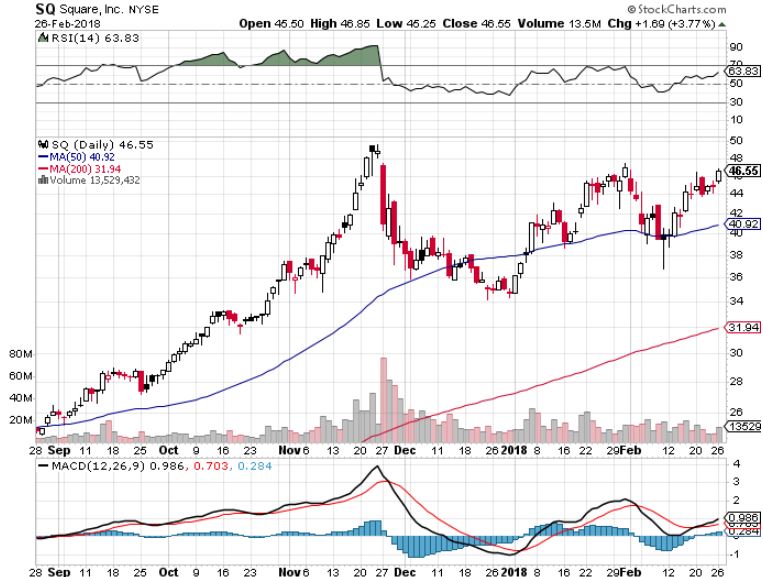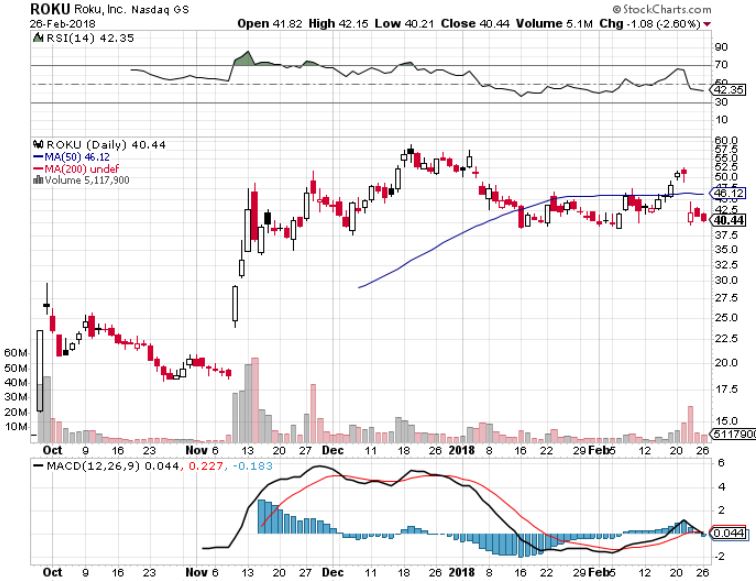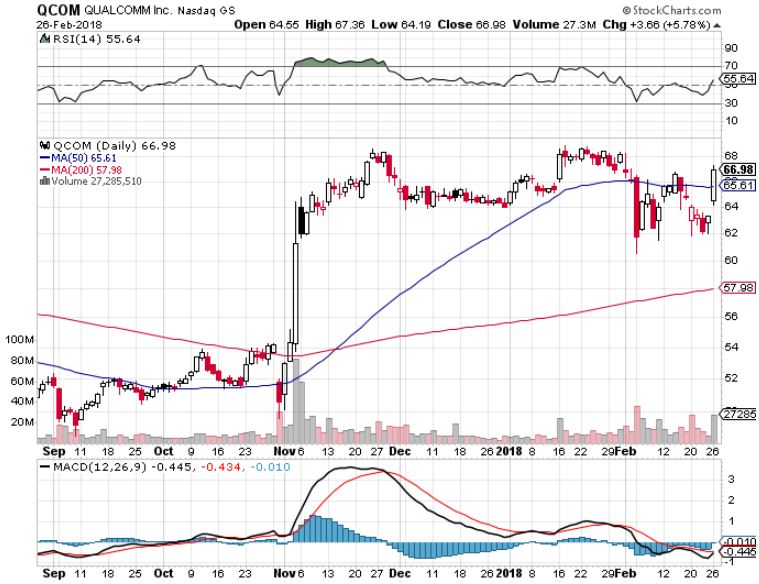Where to Find High Beta in Tech
So, you think the markets have been volatile lately?
I happen to know that for some of you the markets have not been volatile enough.
These people focus on a select group of technology stocks that often move three, four, or five times more than the main market.
I know this is not for everyone. However, today I will toss some red meat to those of you who are true volatility junkies. I will concentrate on five names. Hold your hats, fasten your seat belts, and down the Dramamine!
Either way, higher volatility is here to stay for the time being and traders need to readjust their portfolio strategies accordingly.
Square (SQ)
This Fintech outfit is visionary Jack Dorsey's brainchild. Square is an omni channel payments processor that focuses on bringing affordable payment solutions to small sized enterprises.
Their goal is to eat the lunches of giant, high charging Visa, Master Card, and American Express.
Jack Dorsey invented Square (SQ) after he was kicked out of Twitter (TWTR), another company he founded. It is reminiscent of Steve Jobs departure from Apple, only to return a decade later as the prodigal son to save the company.
Square overtook Twitter in market capitalization in November 2017, vindicating Jack's vision.
The pullbacks in the share price are often violent due to fintech's place as a still nascent segment of tech that causes the elevated beta. The proprietary technology developed at Square is wonderful...they even accept bitcoin.
Roku (Roku)
Roku has a Facebook type business model in terms of advertising, but they are in the embryonic smart television industry. They do not create original content like Netflix (NFLX) but harness a digital distribution platform for 3rd party content using the most sophisticated smart top box device.
In turn, advertisers are charged on Roku and it is a hot new product for all the Millennial cord cutters out there.
Roku posted an earnings beat last week, but its stock sold off a nauseating 22%. That was after the stock moved from $19.50 on October 30, 2017 to an all-time high of $52.31 on December 11, 2017.
Although this is a case of too far too fast, the technology is legit and could develop into the premier platform competing for millennial advertisement exposure.
Qualcomm (QCOM)
This San Diego based company earns the majority of their revenue streams from patent licensing and chip manufacturing. They have been a mainstay in producing chips for your iPhone as their claim to fame.
Qualcomm is the preeminent tech volatility stock in current day terms because of the current hostile takeover bid from Broadcom (AVGO). Hock Tan, the maverick CEO of Broadcom, won't take no for an answer.
This battle royale is taking place at the same time Qualcomm is attempting to buy Dutch semiconductor manufacturer NXP Semiconductors (NXP) for $44 billion. This defiant move has one unequivocal winner - Higher Volatility.
Expect treacherous whipsaws and shocking headlines to affect its share price for the foreseeable future.
AMD (AMD)
Dr. Lisa Su heads the cavalry of this always also ran microprocessor manufacturer. The majority of their revenue derives from CPU's and GPU's. Their main competitor in GPU's is Nvidia (NVDA), so the GPU market is now largely a duopoly.
The CPU chip struggle is contested by Advanced Micro Devices (AMD) and Intel (INTC). (AMD) has solidified their silver medal position in this market. (AMD) was trading down at $1.72 on September 1, 2015 and now sits at over $12.
AMD has a beta of 3.22 meaning it stock moves 322% relative to average stock price movements. Consolidation and chip shortages are overarching themes to the chip industry in 2018, which is why we have been so heavily long them this year.
JD.com (JD)
JD.com or otherwise known in local Chinese mandarin lingo as Jing Dong and is the younger brother of Alibaba (BABA) in a 2-horse race. JD.com is an e-commerce sales platform just like Amazon and mainly sells goods from 3rd party vendors.
Jing Dong is a BAT that isn't a BAT. I am not talking about the furry winged friend who sleeps upside down in a dark cave. I mean the Chinese tech BAT's comprised of Baidu (BAIDU), Alibaba (BABA), and Shenzhen's Tencent. They are China's answer to the American FANG's.
The Chinese e-commerce outperformance has put Alibaba squarely in the running for the world's first $1 trillion company. JD.com is headquartered in Beijing by Liu Qiangdong and Beijingers and Northern Chinese alike swear by this service, especially the authenticity of electronic devices.
If you order an iPhone X on their digital platform, a real iPhone X will actually appear. This isn't always the case in China. It has fewer problems with selling fake goods than Alibaba (BABA).
Alibaba is headquartered in Hangzhou and breeds higher trust levels in the South of China. JD.com also control its entire logistics chain, which streamlines its facilitation in the movement of goods. If the trade war between the US and China deteriorates, Alibaba (BABA) and JD.com (JD) will be hard hit, with JD shares dropping twice as fast as Alibaba's.






